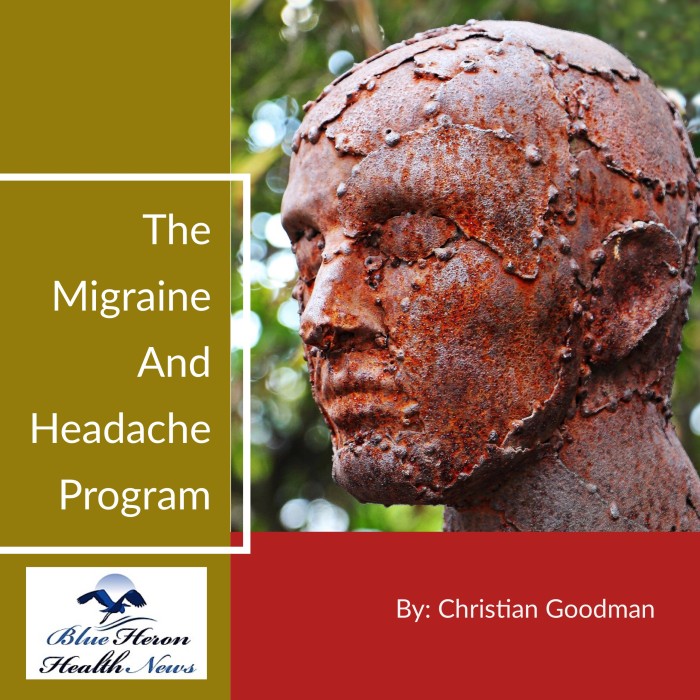
The Migraine And Headache Program By Christian Goodman This program has been designed to relieve the pain in your head due to any reason including migraines efficiently and effectively. The problem of migraine and headaches is really horrible as it compels you to sit in a quiet and dark room to get quick relief. In this program more options to relieve this pain have been discussed to help people like you.
How can one manage migraines during travel?
Managing migraines during travel can be challenging due to changes in routine, diet, and environment, but with careful planning and preparation, it is possible to reduce the risk of triggering a migraine. Here are some strategies to help manage migraines during travel:
1. Prepare a Migraine Travel Kit
- Medication: Bring all prescribed migraine medications, including abortive and preventive medications. Keep them in your carry-on luggage if flying.
- Essential Oils: Carry small bottles of essential oils like lavender or peppermint, which can help with relaxation and pain relief.
- Cold Pack: Portable cold packs or cooling gel strips can provide relief if a migraine occurs.
- Sunglasses and Earplugs: Protect yourself from bright lights and loud noises, which can be migraine triggers.
2. Maintain a Regular Sleep Schedule
- Consistent Sleep: Try to go to bed and wake up at the same times as you do at home, even when crossing time zones.
- Manage Jet Lag: Gradually adjust your sleep schedule before you travel to minimize jet lag. Melatonin supplements may help regulate sleep patterns when crossing time zones.
- Create a Sleep-Conducive Environment: Use an eye mask, earplugs, or white noise apps to block out light and noise, especially in unfamiliar environments.
3. Stay Hydrated
- Drink Water: Dehydration is a common migraine trigger, so drink plenty of water, especially when flying or in warm climates.
- Limit Alcohol and Caffeine: Both can contribute to dehydration and may trigger migraines.
4. Mind Your Diet
- Avoid Trigger Foods: Be mindful of food choices, especially when trying new cuisines. Avoid known trigger foods such as aged cheeses, processed meats, and foods containing MSG.
- Regular Meals: Eat regular meals to keep your blood sugar levels stable. Pack healthy snacks if necessary.
- Be Cautious with Exotic Foods: While trying new foods is part of the travel experience, introduce them gradually to avoid triggering a migraine.
5. Manage Stress
- Plan Ahead: Plan your trip carefully to minimize stress. Arrive at the airport early, and have contingency plans in case of delays or changes.
- Relaxation Techniques: Practice relaxation techniques such as deep breathing, meditation, or progressive muscle relaxation to manage travel-related stress.
- Take Breaks: During long trips, schedule breaks to rest and relax. This can help prevent fatigue and stress, which can trigger migraines.
6. Minimize Environmental Triggers
- Control Light Exposure: Bright lights, including sunlight and fluorescent lighting, can trigger migraines. Wear sunglasses outdoors and avoid prolonged exposure to harsh indoor lighting.
- Avoid Strong Smells: Be aware of strong smells such as perfumes, cleaning products, or certain foods, which can trigger migraines. If possible, move to a well-ventilated area.
- Altitude and Air Pressure: If traveling to high altitudes, be aware that changes in air pressure can trigger migraines. Drink plenty of water and avoid strenuous activities until you acclimate.
7. Medication Timing
- Adjust Medication Schedule: If crossing time zones, consult your doctor about how to adjust your medication schedule to ensure consistent coverage.
- Preventive Medications: If you use preventive medications, make sure to continue taking them as prescribed while traveling.
8. Accommodations and Comfort
- Choose the Right Accommodation: Select a hotel that is quiet and comfortable. Request a room away from noise sources like elevators or busy streets.
- Comfortable Travel Gear: Use a neck pillow, comfortable clothing, and supportive shoes to reduce physical strain, which can contribute to migraines.
9. Flight Considerations
- Avoid Red-Eye Flights: Overnight flights can disrupt sleep patterns, so consider avoiding them if possible.
- Ear Pressure: Use earplugs designed for flying or practice yawning and swallowing during takeoff and landing to manage ear pressure, which can trigger migraines.
10. Have a Contingency Plan
- Know Where to Get Help: Familiarize yourself with nearby pharmacies or medical facilities at your destination in case you need additional medication or medical assistance.
- Emergency Contacts: Keep a list of emergency contacts, including your doctor’s information, in case you need to consult them while traveling.
11. Stay Active
- Light Exercise: Gentle physical activity like walking or stretching can help reduce stress and improve circulation, which may help prevent migraines.
- Avoid Overexertion: While staying active is important, avoid overexerting yourself, especially in extreme temperatures or at high altitudes.
12. Be Flexible
- Adjust Plans If Needed: If you feel a migraine coming on, be willing to adjust your travel plans. Take time to rest and recover rather than pushing through, which could worsen your symptoms.
By following these strategies, you can minimize the risk of triggering a migraine while traveling and be better prepared to manage one if it occurs.

The Migraine And Headache Program By Christian Goodman This program has been designed to relieve the pain in your head due to any reason including migraines efficiently and effectively. The problem of migraine and headaches is really horrible as it compels you to sit in a quiet and dark room to get quick relief. In this program more options to relieve this pain have been discussed to help people like you.